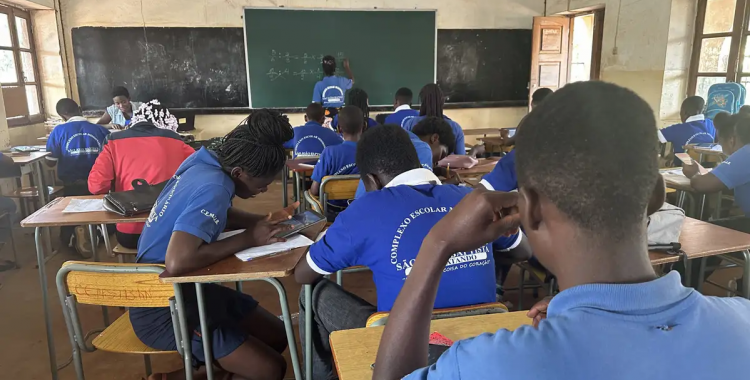The president of the MEA, Francisco Teixeira, stated that he listened carefully to the speech at the solemn opening ceremony of the 2023-2024 academic year, given on Thursday by the vice-president of the country, saying that he expected a "more realistic" speech from Esperança da Costa.
"We didn't agree with a lot of what was said. We expected a much more realistic speech from the vice-president and one that would be more in line with the problems that students are experiencing," he said.
In statements about the official opening of the school year in higher education, with classes beginning on Monday, Francisco Teixeira contested the announcement about progress in public higher education in recent years.
"We don't believe it and we don't accept it, because any individual with mental health and even the slightest knowledge about public higher education in Angola knows that it is not true that there has been progress in public higher education, we have taken several steps back", he declared.
According to the MEA leader, Angolan public universities lack almost everything: "Last year the University of Luanda had difficulties during one or two months of classes due to a lack of desks, we have faculties that don't have more than five computers", he pointed out .
"We have faculties with ink cartridge difficulties, with Internet difficulties, so it's not true that we're making great progress and only those who don't want to see it", insisted the person in charge.
The Government considered the country's progress in expansion and access to higher education over the last two decades to be "undeniable", admitting the need to train more qualified and capable professionals in the face of current and future demands.
The vice-president, Esperança da Costa, said Thursday, at the opening of the academic year, that "the efforts of the Angolan executive are remarkable and the progress that the country has made in terms of expansion and access to higher education in last two decades".
"But, we need to convert this expansion into the training of more qualified professionals capable of meeting the demands of current times and upcoming challenges", she stated.
The vice-president of the Republic, who gave the opening speech at the ceremony, in Luanda, reaffirmed the executive's commitment to improving the quality of education, particularly in the higher education subsystem, placing it "at the service of inclusion, innovation and of sustainable development".
Regarding the need to make higher education digital, as highlighted by Esperança da Costa, the president of the MEA said he did not believe in achieving this goal, especially due to the investment made in the sector.
"We think that, given the investment that the State makes, the way the State looks at public higher education, how it analyzes and budgets education, I think that this will not be possible even in ten or twenty years," he stressed.
Francisco Teixeira also considered that there is a "totally primitive" education in Angola, where, in public colleges, there is a lack of desks, computers, printers, scientific research and books, physical and digital, in libraries.
For the academic year that begins, around 360,000 students are enrolled in higher education distributed across public and private higher education institutions, with a training offer of 1356 courses.







